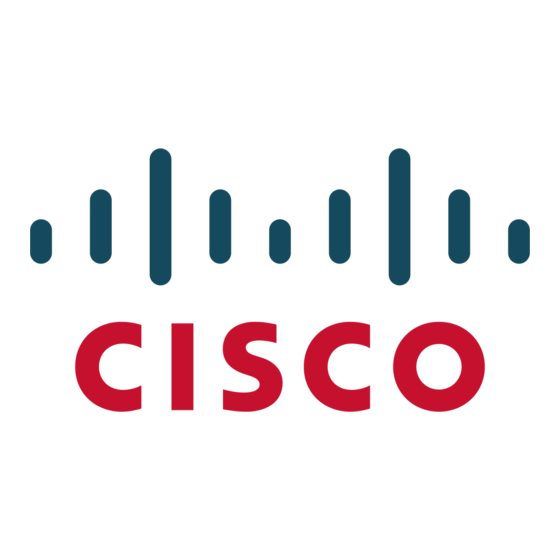Scalability
●
Meets enterprise office requirements of small offices to large corporations
●
Scales up to 30,000 users per cluster with Cisco Unified Communications Manager clustering
Investment Protection
●
Provides a modular platform design with a growing list of more than 90 interface combinations
●
Allows you to increase voice capacity while taking advantage of your existing investments in Cisco Unified
Communications routers
Unified Communications Router with Cisco Unified Communications Manager Feature
Summary
Table 1 summarizes the features of the unified communications routers with Cisco Unified Communications
Manager.
Table 1.
SIP
MGCP
Y
Y
Y
N
Y
Y
Y
N
Y
N
Y
Y
Y
N
Y
Y
Y
N
N
Y
Y
Y
Y
N
Y
N
Y
N
Y
N
Y
N
1
Supports loop-start signaling only
2
Requires Cisco IOS Software Release 12.4(20)T or later and Cisco Unified Communications Manager 8.0 or later
3
Supported between gateways in the absence of Cisco Unified Communications Manager
4
Requires Cisco IOS Software Release 12.4(4)T or later and Cisco Unified Communications Manager 4.2 or later
5
Not supported on the Cisco 1700 Series unified communications routers
© 2013 Cisco and/or its affiliates. All rights reserved. This document is Cisco Public Information.
Cisco Unified Communications Routers with Cisco Unified Communications Manager Feature Summary
H.323
Feature
1
Y
Analog FXS interfaces loop-start and ground-start
signaling
Y
Analog E&M (wink, immediate, and delay) interfaces
Y
Analog FXO interfaces loop-start and ground-start
signaling
Y
Analog direct inward dialing (DID)
Y
Analog Centralized Automated Message Accounting
(CAMA)
Y
BRI Q.931 user side (NET3)
Y
BRI Q.931 network side (NET3)
Y
BRI Q.SIG-basic call (including calling number)
3
N
BRI Q.SIG forward, transfer, and conference
4
N
T1 E&M hookflash
Y
T1-CAS E&M (wink-start and immediate-start) interfaces
Y
T1-CAS E&M (delay dial) interfaces
Y
T1-CAS feature group D
Y
T1-CAS FXO (ground-start and loop-start) interfaces
Y
T1-CAS FXS (ground-start and loop-start) interfaces
Y
E1 CAS
5
Benefits
This signaling facilitates direct connection to phones, fax
machines, and key systems.
These interfaces make direct connection to a PBX
possible.
This feature facilitates connection to a PBX or key system
and provides off-premises connections to or from the
PSTN. Calling line ID (CLID) is available in MGCP mode.
Analog DID enables connection to the PSTN with DID
operation.
Analog CAMA facilitates analog PSTN connection for E-
911 support.
This feature enables connection to PSTN.
This feature enables connection to a PBX.
This feature facilitates connection to a PBX or key
system.
These services enable connection to a PBX or key
system.
This feature is used to transfer a call from time-division
multiplexing (TDM) interactive voice response (IVR) to a
PSTN or IP phone destination.
These interfaces facilitate connection to a PBX, key
system, or PSTN.
These interfaces facilitate connection to a PBX, key
system, or PSTN.
This feature is used to connect to a PBX or PSTN.
These interfaces are used to connect to a PBX or key
system and to provide off-premises connections.
These interfaces are used to connect to a PBX or key
system.
E1 CAS enables connection to a PBX or PSTN.
2
Page 5 of 20

